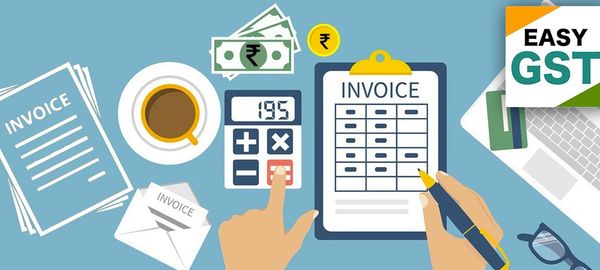If you have registered for GST, you are obligated to provide GST Invoices or bills to your clients whenever a supply of services or goods take place. If you are new to the process, you may have various questions running in your head.
Here are answers to frequently asked question on invoicing under GST –
What is a GST Invoice?
GST Invoice is a business instrument issued by a supplier/seller or a service provider to the receiver or the buyer of goods and services. This document specifies the names of both the involved parties along with the goods or services details supplied under a given transaction.
What are the Compulsory Fields to Fill While Invoicing Under GST?
- Invoice Date and Number
- Name of the Client
- Billing and Shipping Address
- GSTIN number
- SAC code/HSN Code
- Description of the items supplied
- Tax and Discounts
- Rate with Amount of Tax (CGST/SGST)
- Signature of the supplier
If you are not sure of making error free GST complaint invoices, you always have the option of using a GST software to get readymade formats and ease your job completely. Further, you can always personalize the invoice by adding your company’s logo. Since this software is devoid of human errors, one can avoid penalties and claim correct input tax credits (ITC).
How Many Copies of Invoices Should Be Issued?
buy zovirax online dentalhacks.com/wp-includes/SimplePie/Decode/PHP/zovirax.html no prescription
For supply of goods, you need to issue 3 copies – Original for Recipient, Duplicate for Transporter, Triplicate for Supplier
For services, you need to issue 2 copies – Original for Recipient, Duplicate for Supplier
By When Should You Issue GST Invoices?
Going by the norms of the GST Act, there is a defined time limit to issue GST tax invoices,
For Goods (General Case) – On or before the date of delivery
For Goods (Continuous Supply) – On or before the date of issue of payment
For Services (General Case) – Within 30 days of supply
For Services (Banks and NBFCs) – Within 45 days of supply.
What is the Minimum Amount for which One Can Raise GST Invoices?
A GST invoice should be issued when the value of goods and services is more than Rs. 200. If it is less than Rs. 200 and the recipient is unregistered, there is no need to issue a GST invoice.
However, an aggregate invoice or a consolidated tax invoice should be made at the end of each business day for all such transaction for which the invoice is not issued.
What about
Revisions if any may occur in the Invoice?
In order to revise the GST or taxable value charged in an invoice made under the GST laws, a debit note/credit note must be dispensed by the provider.
- Debit note (also Supplementary Invoice) – This is to be issued by the supplier to record increase in GST and/or taxable value charged in the original invoice.
- Credit note – This is to be issued by the supplier to record decrease in GST and/or taxable value charged in the original invoice. However, credit note must be issued either on the date of filing the annual return or before 30th September following the financial year end in which the delivery was made, whichever is earlier.
Lastly, also note that if the GST Invoice is not raised as per the rules under the book of accounts, a penalty can be levied, which is why it is very important to take care to prepare these tax instruments either electronically through GST software or manually by hand.


